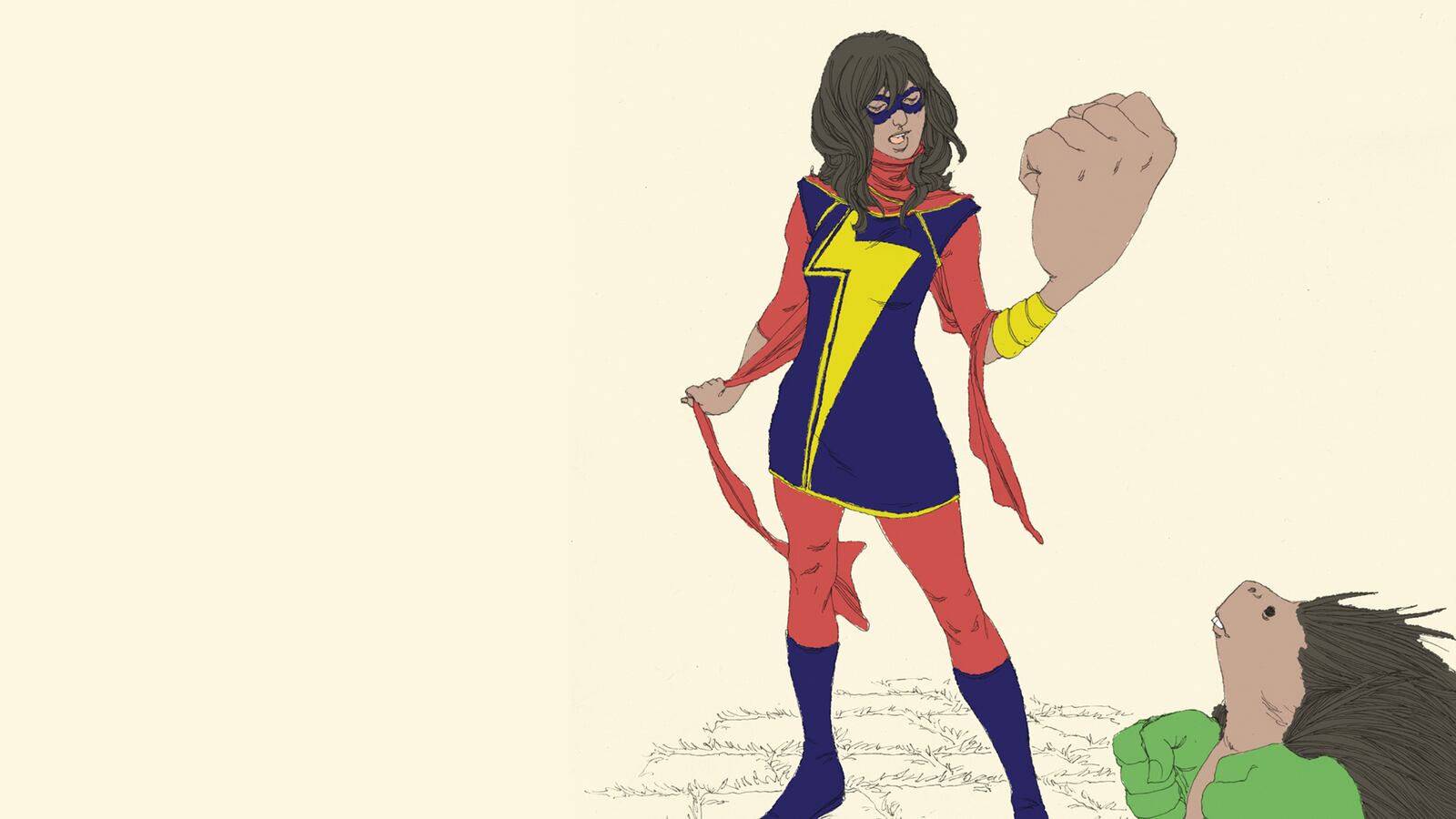Marvel has a comic book superhero named Kamala Khan, a Muslim teen from New Jersey. This idea is refreshing. It’s important. It reminds me of the late ‘60s film Guess Who’s Coming to Dinner. That was a revolutionary story about interracial marriage in America at a time when it was taboo. Like that film, Kamala will shatter taboos, too. Ms. Marvel (Kamala’s alter ego) will open the eyes of a new generation of comic book readers to the mostly unseen, unknown complexities of being a Muslim-American woman.

During the last decade, the media has sometimes portrayed Muslims as the villains. As someone said after 9/11 “The only good Muslims are dead Muslims.” Rightwing media outlets and political opinion-formers have sometimes played a delirious role in promoting—and giving platforms—to ex-Muslims who not only hate their former religion, but advocate a “war on Islam” as if it's a singular entity and as if a war on a religion is feasible or winnable. This poisoned public space is the background against which many young Muslims are growing up.
Only recently have we stopped ignoring the voices that have been risking their lives by demanding reforms in the Muslim world. It took brave people like Pakistan’s young Malala Yousafzai, who was shot by the Taliban for advocating for girls education, and sacrificial leader Benazir Bhutto, who was educated in the West, went back to her country, covered her head in respect of her religion, and still said that religion should not be dominating politics.
They are not alone—millions of heroes in the Muslim world are playing a central role in the fight against extremism by challenging the al Qaeda narrative. They are showing that more Muslims died by the hands of al Qaeda than during the wars in Iraq and Afghanistan. These heroes need to be part of the narrative in the West. This will only help improve bilateral relations between the United States and the Muslim world. This will inform American public opinion and, by extension, move towards removing the dark clouds of prejudice and collective blame that that create harsh condition for innocent young Muslims.
With Kamala Khan, Marvel is smashing the tired stereotype by showing the universality of issues that plague teenagers. Kamala's character will struggle to exist in her observant Muslim family. Breaking the rules is something every teenager does—and it becomes harder when your culture is not about embracing your individuality, but often more about your community.
Kamala's conflict seems to represent this moment in history in the Arab Muslim world where the masses are taking to the streets to demand freedom and democracy. Those images themselves should debunk the myths that Islam and Muslims are extreme. The Arab Spring and subsequent protests show us that people across the world, young and old, share universal values.
Kamala reminds me of myself when I was 14, witnessing violence in the Middle East. I asked my father in Palestine why violence is justified in Islam and his answer was that the danger isn't in the holy book, the Quran, but in the brains that interpret them. Today, the danger is not with Muslims, but the brains (or lack thereof) of interpreting Islam and Muslim scripture for the modern world. These are the people preventing Muslim teens from breathing freely without the fear of being judged by their fellow Americans. Marvel’s work is a watershed moment in breaking down fear and ignorance, and creating greater awareness and familiarity.
It's time to stop the monologue and hate—and with the use comics let us hope that a real dialogue of civilizations is starting between the West and Muslims.






